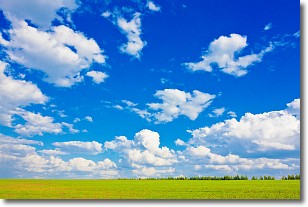Weather Alert in Colorado
Blowing Dust Warning issued May 14 at 10:22PM CDT until May 15 at 1:00AM CDT by NWS Goodland KS
AREAS AFFECTED: Kit Carson County; Cheyenne County; Sherman; Thomas; Wallace; Logan; Greeley; Wichita
DESCRIPTION: * WHAT...For the Blowing Dust Warning, patchy blowing dust and brown out conditions. For the High Wind Warning, west winds 25 to 35 mph with gusts up to 70 mph. * WHERE...Portions of east central Colorado and northwest and west central Kansas. * WHEN...Until midnight MDT /1 AM CDT/ tonight. * IMPACTS...Severely limited visibilities are expected. Travel will be dangerous and possibly life-threatening. Poor air quality may cause issues for people with respiratory problems. High winds may move loose debris, damage property and cause power outages. Travel could be difficult, especially for high profile vehicles. Plumes of blowing dust will create pockets of low visibility. Visibilities will likely change rapidly over short distances, making travel hazardous in these areas.
INSTRUCTION: Blowing dust can significantly lower air quality and it is encouraged that you take preventative measures such as staying indoors or wearing protective breathing masks if outside. High dust concentrations can cause respiratory problems, decrease lung activity, aggravate asthma, and lead to potential heart-related problems, especially with children, elderly or those with pre-existing respiratory conditions. Be ready for a sudden drop in visibility to near zero. If you encounter blowing dust or blowing sand on the roadway or see it approaching, pull off the road as far as possible and put your vehicle in park. Turn the lights all the way off and keep foot off the brake pedal. Remember, 'Pull Aside, Stay Alive'. Roads may close due to hazardous driving conditions in blowing dust. Traveling in blowing dust is very dangerous, do not attempt to go around barricades. Fasten loose objects or shelter objects in a safe location prior to the onset of winds.
Want more detail? Get the Complete 7 Day and Night Detailed Forecast!
Current U.S. National Radar--Current
The Current National Weather Radar is shown below with a UTC Time (subtract 5 hours from UTC to get Eastern Time).

National Weather Forecast--Current
The Current National Weather Forecast and National Weather Map are shown below.

National Weather Forecast for Tomorrow
Tomorrow National Weather Forecast and Tomorrow National Weather Map are show below.

North America Water Vapor (Moisture)
This map shows recent moisture content over North America. Bright and colored areas show high moisture (ie, clouds); brown indicates very little moisture present; black indicates no moisture.

Weather Topic: What are Contrails?
Home - Education - Cloud Types - Contrails
 Next Topic: Cumulonimbus Clouds
Next Topic: Cumulonimbus Clouds
A contrail is an artificial cloud, created by the passing of an
aircraft.
Contrails form because water vapor in the exhaust of aircraft engines is suspended
in the air under certain temperatures and humidity conditions. These contrails
are called exhaust contrails.
Another type of contrail can form due to a temporary reduction in air pressure
moving over the plane's surface, causing condensation.
These are called aerodynamic contrails.
When you can see your breath on a cold day, it is also because of condensation.
The reason contrails last longer than the condensation from your breath is
because the water in contrails freezes into ice particles.
Next Topic: Cumulonimbus Clouds
Weather Topic: What are Cumulus Clouds?
Home - Education - Cloud Types - Cumulus Clouds
 Next Topic: Drizzle
Next Topic: Drizzle
Cumulus clouds are fluffy and textured with rounded tops, and
may have flat bottoms. The border of a cumulus cloud
is clearly defined, and can have the appearance of cotton or cauliflower.
Cumulus clouds form at low altitudes (rarely above 2 km) but can grow very tall,
becoming cumulus congestus and possibly the even taller cumulonimbus clouds.
When cumulus clouds become taller, they have a greater chance of producing precipitation.
Next Topic: Drizzle
Current conditions powered by WeatherAPI.com




